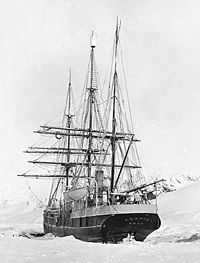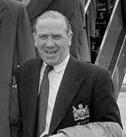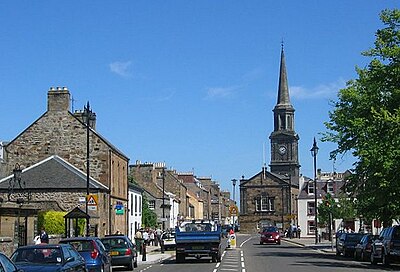Portal:Scotland
| Main Page | Selected articles 1 | Selected articles 2 | Selected biographies | Selected quotes | Selected pictures | Featured Content | Categories & Topics |
Introduction
 |

|
|

| ||
Scotland (Scots: Scotland; Scottish Gaelic: Alba) is a country that is part of the United Kingdom. It contains nearly one-third of the United Kingdom's land area, consisting of the northern part of the island of Great Britain and more than 790 adjacent islands, principally in the archipelagos of the Hebrides and the Northern Isles. To the south-east, Scotland has its only land border, which is 96 miles (154 km) long and shared with England; the country is surrounded by the Atlantic Ocean to the north and west, the North Sea to the north-east and east, and the Irish Sea to the south. The population in 2022 was 5,436,600 and accounts for 8% of the population of the UK. Edinburgh is the capital and Glasgow is the largest of the cities of Scotland.
The Kingdom of Scotland emerged in the 9th century. In 1603, James VI inherited the Kingdom of England and the Kingdom of Ireland, forming a personal union of the three kingdoms. On 1 May 1707 Scotland and England combined to create the new Kingdom of Great Britain, with the Parliament of Scotland subsumed into the Parliament of Great Britain. In 1999 a Scottish Parliament was re-established, and has devolved authority over many areas of domestic policy. The country has a distinct legal system, educational system, and religious history from the rest of the UK, which have all contributed to the continuation of Scottish culture and national identity. Scottish English and Scots are the most widely spoken languages in the country, existing on a dialect continuum with each other. Scottish Gaelic speakers can be found all over Scotland, however the language is largely spoken natively by communities within the Hebrides. The number of Gaelic speakers numbers less than 2% of the total population, though state-sponsored revitalisation attempts have led to a growing community of second language speakers.
The mainland of Scotland is broadly divided into three regions: the Highlands, a mountainous region in the north and north-west; the Lowlands, a flatter plain across the centre of the country; and the Southern Uplands, a hilly region along the southern border. The Highlands are the most mountainous region of the British Isles and contain its highest peak, Ben Nevis, at 4,413 feet (1,345 m). The region also contains many lakes, called lochs; the term is also applied to the many saltwater inlets along the country's deeply indented western coastline. The geography of the many islands is varied. Some, such as Mull and Skye, are noted for their mountainous terrain, while the likes of Tiree and Coll are much flatter. (Full article...)
Selected article

The Scottish National Antarctic Expedition (SNAE), 1902–1904, was organised and led by William Speirs Bruce, a natural scientist and former medical student from the University of Edinburgh. Although overshadowed in terms of prestige by Robert Falcon Scott's concurrent Discovery Expedition, the SNAE completed a full programme of exploration and scientific work. Its achievements included the establishment of a staffed meteorological station, the first in Antarctic territory, and the discovery of new land to the east of the Weddell Sea. Its large collection of biological and geological specimens, together with those from Bruce's earlier travels, led to the establishment of the Scottish Oceanographical Laboratory in 1906.
Bruce had spent most of the 1890s engaged on expeditions to the Antarctic and Arctic regions, and by 1899 was Britain's most experienced polar scientist. In March of that year, he applied to join the Discovery Expedition; however, his proposal to extend that expedition's field of work into the Weddell Sea quadrant, using a second ship, was dismissed as "mischievous rivalry" by Royal Geographical Society (RGS) president Sir Clements Markham. Bruce reacted by obtaining independent finance; his venture was supported and promoted by the Royal Scottish Geographical Society.
The expedition has been described as "by far the most cost-effective and carefully planned scientific expedition of the Heroic Age." Despite this, Bruce received no formal honour or recognition from the British Government, and the expedition's members were denied the prestigious Polar Medal despite vigorous lobbying. After the SNAE, Bruce led no more Antarctic expeditions, although he made regular Arctic trips. His focus on serious scientific exploration was out of fashion with his times, and his achievements, unlike those of the polar adventurers Scott, Shackleton and Amundsen, soon faded from public awareness. The SNAE's permanent memorial is the Orcadas weather station, which was set up in 1903 as "Omond House" on Laurie Island, South Orkneys, and has been in continuous operation ever since.
Selected quotes
" ... Instinct is untaught ability ... "
" ... The great and good do not die even in this world. Enbalmed in books, their spirits walk abroad ... "
In the news

- 7 May 2024 – Premiership of John Swinney
- The Scottish Parliament votes to elect John Swinney as First Minister of Scotland with 64 votes in favour and seven abstentions from the Scottish Greens. (BBC News)
- 6 May 2024 – 2024 Scottish National Party leadership election
- John Swinney is elected leader of the Scottish National Party following the resignation of First Minister Humza Yousaf. (The Guardian)
- 4 May 2024 – International reactions to the Israel–Hamas war
- Palestinian doctor and rector at the University of Glasgow Ghassan Abu-Sittah is denied entry into France after landing at Charles de Gaulle airport on his way to speak at the French Senate. Last month, he was denied entry into Germany. (Al Jazeera)
- 1 May 2024 – 2024 Scottish government crisis
- The Scottish National Party administration survives the vote of no confidence earlier this week, prompting the party to seek a replacement for outgoing First Minister Humza Yousaf. (Al Jazeera)
- 29 April 2024 – 2024 Scottish government crisis
- Ahead of a planned vote of no confidence, Scottish First Minister Humza Yousaf announces that he will resign from office. (CNBC) (The New York Times)
- 25 April 2024 – 2024 Scottish government crisis
- Premiership of Humza Yousaf
Selected biography

Sir Alexander Matthew Busby CBE (26 May 1909 – 20 January 1994) was a Scottish football player and manager, who managed Manchester United between 1945 and 1969 and again for the second half of the 1970–71 season. He was the first manager of an English team to win the European Cup and is widely regarded as one of the greatest managers of all time.
Before going into management, Busby was a player for two of Manchester United's greatest rivals, Manchester City and Liverpool. During his time at City, Busby played in two FA Cup Finals, winning one of them. After his playing career was interrupted by the Second World War, Busby was offered the job of assistant coach at Liverpool, but they were unwilling to give him the control that he wanted over the first team. As a result, he took the vacant manager's job at Manchester United instead, where he built the famous Busby Babes team that won successive Football League First Division titles and challenged for the European Cup. Eight of these players died in the Munich air disaster, but Busby rebuilt the team and won several more First Division titles and domestic trophies before United won the European Cup a decade later. In a total of 25 years with the club, he won 13 trophies including five league championships and the European Cup.
Selected picture
The Royal Burgh of Haddington is a town in East Lothian. It is the main administrative, cultural and geographical centre for East Lothian, which was known officially as Haddingtonshire before 1921. It lies approximately 20 miles (32 km) east of Edinburgh.
Photo credit: Richard Webb
Did You Know...

- ... that Prince Philip was the first member of the British royal family to fly in a helicopter?
- ... that Scottish novelist Isla Dewar said "if ... a thing is not worth doing then it's worth doing fabulously, amazingly, with grace, style and panache"?
- ... that the uncommon Florida lichen species Gyalectidium yahriae was named after Rebecca Yahr of the Royal Botanic Garden Edinburgh in Scotland?
- ... that within the graveyard of the Category A–listed Crossmichael Parish Church, there is a memorial to William Gordon of Greenlaw that is itself designated Category A in its own right?
- ... that William of Littlington opposed the division of England and Scotland into two Carmelite provinces in 1303, was excommunicated, and did four years' penance in Paris?
- ... that mountaineer and geographer Caleb George Cash was instrumental in preserving essential documents pertaining to the first known atlas of Scotland?
- ... that Scottish nurse Euphemia Steele Innes was decorated with the Royal Red Cross first class for services with the Territorial Force Nursing Service in World War I?
- ... that Scottish inventor and music teacher Anne Gunn was granted the first British patent for a board game in 1801?
Get involved
For editor resources and to collaborate with other editors on improving Wikipedia's Scotland-related articles, see WikiProject Scotland.
To get involved in helping to improve Wikipedia's Scotland related content, please consider doing some of the following tasks or joining one or more of the associated Wikiprojects:
- Visit the Scottish Wikipedians' notice board and help to write new Scotland-related articles, and expand and improve existing ones.
- Visit Wikipedia:WikiProject Scotland/Assessment, and help out by assessing unrated Scottish articles.
- Add the Project Banner to Scottish articles around Wikipedia.
- Participate in WikiProject Scotland's Peer Review, including responding to PR requests and nominating Scottish articles.
- Help nominate and select new content for the Scotland portal.
Do you have a question about The Scotland Portal that you can't find the answer to?
Post a question on the Talk Page or consider asking it at the Wikipedia reference desk.
Related portals
Other language versions
Associated Wikimedia
The following Wikimedia Foundation sister projects provide more on this subject:
-
Commons
Free media repository -
Wikibooks
Free textbooks and manuals -
Wikidata
Free knowledge base -
Wikinews
Free-content news -
Wikiquote
Collection of quotations -
Wikisource
Free-content library -
Wikispecies
Directory of species -
Wikiversity
Free learning tools -
Wikivoyage
Free travel guide -
Wiktionary
Dictionary and thesaurus







































